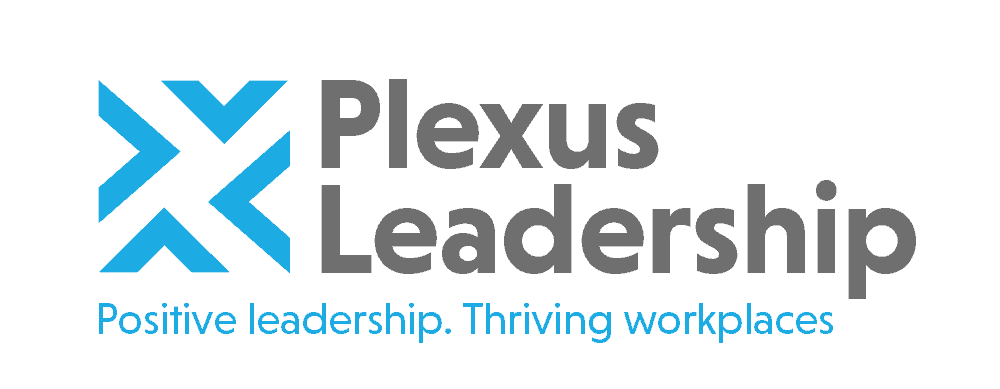Brexit, disruptive technological advancement, ever-changing customer preferences, fierce global competition…. the list goes on and on. Leaders are under immense pressure and many are struggling to cope. In our coaching and leadership development consulting we see many leaders who are suffering from chronic work-related stress. Risks include physical, psychological, organisational ones, including deteriorating health, attention-deficit syndrome, high levels of stress, deterioration in performance and breakdown of healthy family relations. In a high-pressure world where a culture of workplace presenteeism prevails and terms like “superfast”, “new normal” and “hyper-growth” are the new buzzwords, even the most resilient and agile leaders are likely to buckle and succumb to growing pressures at some point in their career. So how can leaders survive, and even learn to thrive, amidst all this stress and uncertainty. Below are 5 top tips to help leaders beat the pressure.
Accept your vulnerabilities
It’s important for leaders, regardless of how smart, experienced or resilient they think they are, to accept that they are not super-heroes with infinite capabilities, motivation and energy. Everyone, including the highest performing leaders, has areas of weakness and vulnerability. I have yet to meet the elusive “well-rounded leader” because they exist only in people’s imaginations. Leaders can become stronger if they accept these inevitable shortfalls and bring in co-workers and others outside the company (coaches, mentors, consultants, etc.) who can help and support them, especially when they are facing periods of great pressure. The best leaders identify and call on people with complementary strengths and styles who can help in areas where they are weaker or provide targeted support to enhance performance.
Set clear boundaries
Strong leaders set clear boundaries between work and personal life, even though this is often extremely challenging given today’s connected and dynamic 24-7 work culture. Work often becomes the winner in the battle for a leader’s focus, time and energy, especially among high achievers who often become addicted to, and find ego gratification, in an endless stream of work-based achievements. The most effective leaders understand the importance of having a life outside work and ensuring they have time for relaxation. They protect their personal time by setting and sticking to boundaries between their work and home life. For example, some restrict online time in the evenings, others take time out for a workout during lunchtime and some ensure they get home for dinner with the family a few days a week. To ensure co-workers understand and respect their boundaries, leaders should communicate these clearly to their co-workers. They might also need to remind them from time to time if people aren’t respecting these boundaries.
Become a master delegator
Many leaders we meet, especially those who have progressed into leadership and management roles through highly specialised career tracks like engineering, tech and pharmaceuticals, are not good at delegating. Poor delegation not only undermines employee motivation and morale, but also puts a huge psychological and mental burden on the leader as they end up carrying a disproportionate amount of the team’s workload and responsibility. Good leaders learn to empower their people and hold them accountable for effective follow-through and results. They look for opportunities to play others’ strengths, skills and experience. They challenge them to take more responsibility, taking time to provide support, coaching and encouragement to help them succeed.
Build a learning mindset
The most resilient leaders are often the best learners. They build a healthy mindset rooted in positivity, learning and finding creative solutions to problems. They continuously find opportunities to develop themselves and see each new challenge as an opportunity to grow their skills, talents and mindset. In this way, they turn setbacks and high-pressure situations into positive opportunities for progress and self-improvement. By spending time learning from mistakes and setbacks, they build resourcefulness, improved capabilities and agility to deal with a wide range of stressful and challenging situations and dilemmas.
Ensure a strong network of support
The most independent leaders are typically the ones that are most vulnerable when the heat is turned up at work. They internalise negative stress which builds up until it overwhelms them. They often learn a limiting belief early in their life that great strength and success comes from being independent and self-reliant. Effective leaders build strong networks within and outside work to provide practical and emotional support during periods of pressure and uncertainty. They challenge limiting beliefs and embrace the true value of connectedness and collaboration in order to optimise their performance and relationships.
A combination of disruptive technological change, a growing culture of 24-7 connectedness, increased competitiveness and slowing economy all point to increased pressure for leaders, regardless of their level or sector. Although leaders can’t avoid these pressures, they can minimise the impact of negative stress by implementing the above tips before they become overwhelmed, burn themselves out and jeopardize their mental health.
Other Posts

About the Author
James Brook
Founder and MD | Leadership Consultant | Organizational Psychologist
James is a leadership consultant, organizational psychologist and executive coach. He has over 25 years’ experience working with leaders, teams and organizations globally to optimize their performance, talent and future success. He specializes in positive leadership, thriving workplaces, collaboration and influencing, organizational change and transformation, accelerating innovation and coaching executives and leaders in innovative sectors including Tech, Digital, E-commerce and Life Sciences.
Before setting up Plexus Leadership, James held leadership roles in HR and Talent Management in the UK and abroad with companies such as NatWest, Yahoo! and Novo Nordisk Pharmaceuticals. After this, he founded and led several talent and leadership consulting and assessment businesses, including Strengthscope®, an online strengths assessment and development business serving a wide range of UK and global clients. James grew this venture into a global market leader before selling the business in 2018.
James has supported, advised and coached leaders and teams globally across diverse industries and geographies. Clients he has worked with include Allen & Overy, Commvault, Equinor, Facebook, GSK, Hilton, John Lewis, Novartis Pharmaceuticals, NHS, Oracle, Sainsbury’s, Swiss Re, Tesco, Takeda Pharmaceuticals, WSP and Yahoo!.
James has a Master’s in Organizational Psychology, an MBA, an Advanced Diploma in Executive Coaching and a Harvard Business qualification in Sustainable Business Strategy. He is a member of the Institute of Directors, the Association of Business Psychologists and a Fellow of the Chartered Institute of Personnel and Development (FCIPD). He is currently undertaking a PhD in Organizational Psychology examining the start-up experiences of Tech and Digital entrepreneurs.
James is a regular contributor and speaker on leadership, coaching, innovative talent management and the future of work. His most recent book, Optimize Your Strengths, explores how leaders can create thriving workplaces by inspiring and supporting people to optimize their potential and teamwork to deliver breakthrough results.





